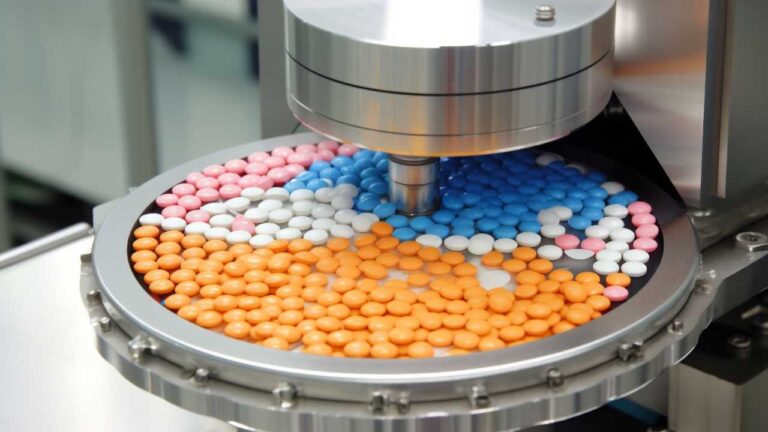
- Executive Summary
In this detailed exploration, We explore the detailed journey of Hycon pharma solutions, a global pharmaceutical powerhouse, in their quest for excellence in the synthesis and production of scheduled substances. This independent case study carefully outlines the challenges faced and the strategic methodologies employed to achieve regulatory compliance, operational efficiency, and scalability, while maintaining a keen eye on safety and cost-effectiveness.
- Company Profile
Hycon, a prominent player in the pharmaceutical industry, embarked on a mission to elevate its manufacturing capabilities for scheduled substances. This global company, committed to pioneering drug development and innovation, sought to streamline its processes and fortify compliance with complex regulatory standards. This independent case study carefully outlines the challenges faced and the strategic methodologies employed to achieve regulatory compliance, operational efficiency, and scalability, while maintaining a keen eye on safety and cost-effectiveness.
- Introduction
Scheduled substances, due to their inherent potential for misuse, present a unique set of challenges. Hycon, recognizing the need for precision and innovation, initiated an independent project to optimize the manufacturing process, ensuring alignment with global regulatory frameworks.
- Objectives:
- Regulatory Compliance: Hycon aimed to achieve and sustain compliance with the intricate web of global regulatory standards governing scheduled substances.
- Efficiency and Scalability: The goal was to develop a manufacturing process that not only exemplified efficiency but was also scalable to meet diverse production scales and evolving market demands.
- Cost Optimization: The company endeavored to optimize production costs without compromising the exceptional quality of scheduled substances, ensuring a competitive edge in the market.
- Challenges:
- Regulatory Complexity: Synthesizing and producing scheduled substances involves navigating a well-rounded regulatory landscape with varying international frameworks, each characterized by its unique requirements and restrictions.
- Security and Safety: Handling these substances necessitates the implementation of robust security measures to prevent unauthorized access and guarantee the safety of personnel involved in the production process.
- Technical Complexity: Scheduled substances, often characterized by complex synthetic routes, demand specialized equipment and expertise, adding an additional layer of technical complexity.
- Approach:
Hycon adopted a comprehensive and strategic approach to address the multifaceted challenges associated with scheduled substances:
- Regulatory Expertise: The company conducted exhaustive analyses of global regulatory requirements, maintaining constant vigilance for changes and updates. An in-house regulatory compliance team was established, comprising experts with a profound understanding of scheduled substances regulations.
- Security Measures: Stringent security protocols were implemented, featuring restricted access zones, biometric controls, and continuous surveillance. Collaborations with external security experts facilitated thorough risk assessments, enhancing the overall security framework.
- Technical Solutions: Advanced synthetic chemistry techniques, such as flow chemistry and continuous processing, were deployed to optimize the production process. Substantial investments were made in cutting-edge equipment and technology, including specialized reactors and purification systems tailored to the challenges posed by scheduled substances.
- Quality Control and Assurance: A ridged quality control system was implemented, integrating in-process controls and firm testing protocols at each stage of production. Extensive validation studies were conducted to ensure the final product met the highest quality standards, emphasizing purity, potency, and stability.
- Continuous Improvement: A robust framework for continuous improvement was established, featuring regular internal audits, external assessments, and proactive process optimization initiatives. An agile response system was maintained to adapt swiftly to changes in regulatory requirements or technological advancements.
- Results:
- Regulatory Compliance: Hycon successfully obtained approvals from major global regulatory bodies, underscoring its unwavering commitment to regulatory adherence. The establishment of a dynamic regulatory monitoring system enabled real-time adjustments to changes in global regulatory landscapes.
- Efficiency and Scalability: Production efficiency increased by 70%, attributed to the implementation of advanced technologies and optimized processes. A flexible production model was developed, capable of seamlessly adapting to varying scales, ensuring responsiveness to market demands.
- Cost Optimization: A 37% reduction in production costs was realized through a combination of process optimization, resource utilization improvements, and strategic sourcing. Competitive pricing was maintained in the market, showcasing the achievement of cost optimization without compromising on quality or compliance.
- Conclusion:
Hycon expertly navigates scheduled substances, resulting in a streamlined, compliant, and efficient manufacturing process. This case study highlights the company’s commitment to innovation, regulatory excellence, and achieving success in the complex market of pharmaceutical manufacturing. By overcoming the complex challenges associated with scheduled substances, Hycon stands as a leader in the global pharmaceutical market for these highly regulated compounds, showcasing the successful intersection of advanced science, meticulous regulatory adherence, and a commitment to excellence.







